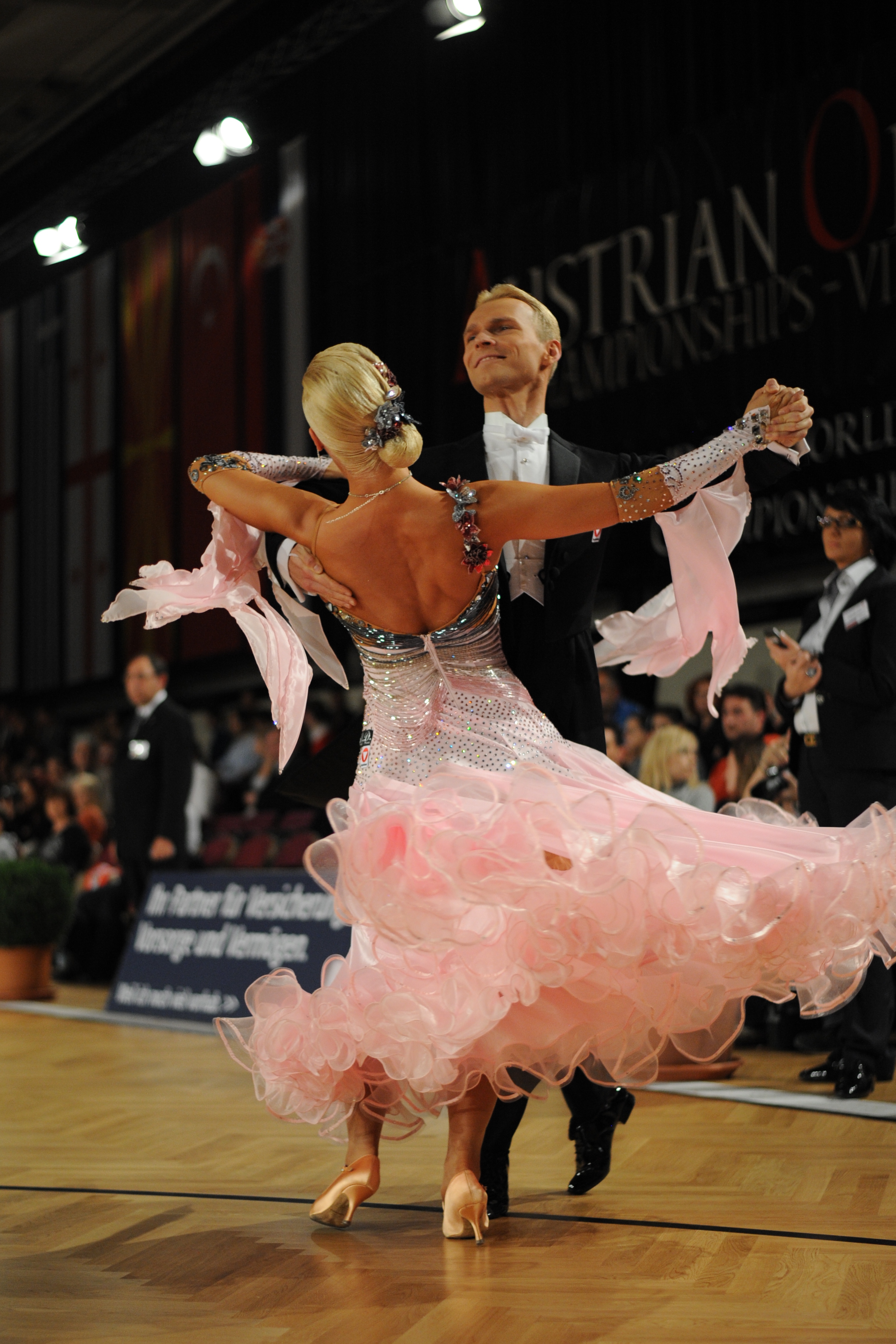Leader and Follower
From Londonhua WIKI
Leader and Follower
 | |
| Vadim Garbuzov and Kathrin Menzinger at the WDSF World Open Standard 2012 | |
|---|---|
| Credit: | Ailura[1] |
Overview
In social dances that pair two dancers together for choreographed or improvised movement, it is typical for one dancer to be the "leader," and the other to be the "follower." This diversification of roles is especially important in Ballroom Dances.
Contents
Roles
Leaders and followers execute different step patterns while dancing the same figures, and have different roles to perform in support of the couple[2].
Leader
In Ballroom dances, the leader's role involves keeping time, maintaining balance, and suggesting which steps to perform next[3]. The leader is in primary control over the couple's movements, and must effectively communicate his intentions with the follower. This is largely done through body contact. If both leader and follower have strong frame, then when the leader moves his body the follower will instinctively move with him. The leader is also in charge of keeping time for the couple and maintaining both his own balance and the follower's. This role falls to the leader because his footwork is generally less complex than that of the follower. As an example, when a follower is executing an underarm turn, it is the leader's responsibility to make sure that she remains centered and finishes on the correct beat[4].
Follower
For all Ballroom dances, the primary role of the follower is to read the read the leader's signals and execute the suggested steps[5]. In order to follow well, good communication is essential[6]. This communication largely comes from physical contact, and tells the follower where her partner is, what he's doing, and, from these pieces of information, what she should do next.
Gender Roles
Traditionally, the leader of a social dance is male, and the follower is female. While traditional, this set of roles is not required. Any other combination, female leading male, female leading female, male leading male, is also accepted in modern Ballroom Dance. However, male leading female is the most common. Of the other combinations, female leading female is most often seen.
References
- ↑ By Ailura (Own work) [CC BY-SA 3.0 (http://creativecommons.org/licenses/by-sa/3.0)], via Wikimedia Commons
- ↑ Villavicencio, D. (2016, March 24). What is Leading and Following in Ballroom Dance. Retrieved May 12, 2017, from http://www.arthurmurraydancenow.com/blog/what-is-leading-and-following-in-ballroom-dancing
- ↑ Villavicencio, D. (2016, March 24). What is Leading and Following in Ballroom Dance. Retrieved May 12, 2017, from http://www.arthurmurraydancenow.com/blog/what-is-leading-and-following-in-ballroom-dancing
- ↑ Lead and Follow. (n.d.). Retrieved May 12, 2017, from http://www.dancecentral.info/ballroom/resources/lead-and-follow
- ↑ Villavicencio, D. (2016, March 24). What is Leading and Following in Ballroom Dance. Retrieved May 12, 2017, from http://www.arthurmurraydancenow.com/blog/what-is-leading-and-following-in-ballroom-dancing
- ↑ Lead and Follow. (n.d.). Retrieved May 12, 2017, from http://www.dancecentral.info/ballroom/resources/lead-and-follow